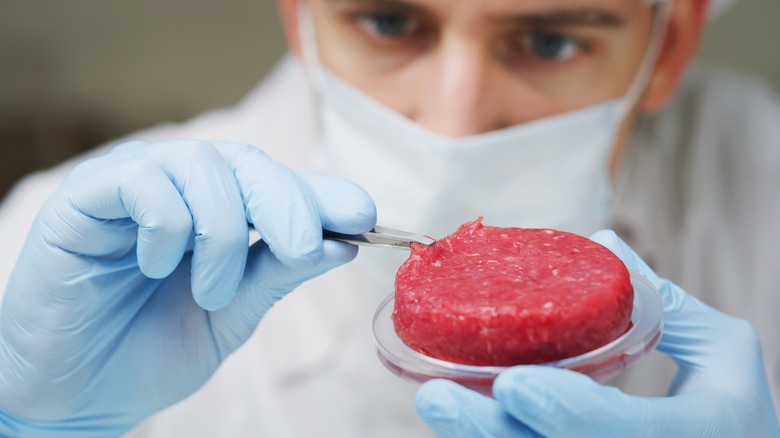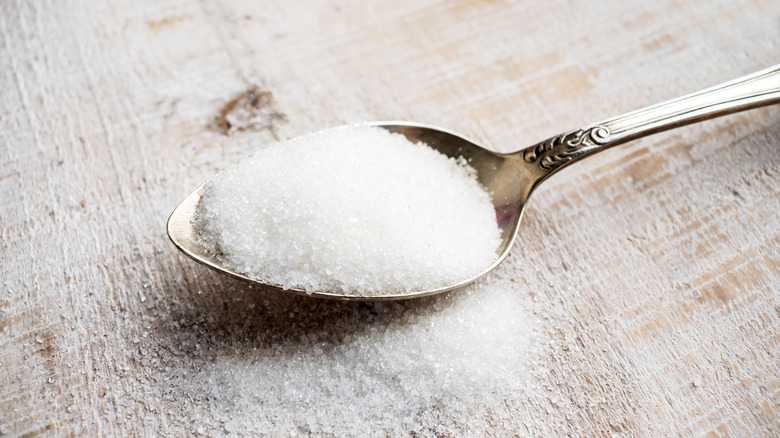The Truth Behind The Potential Harm Of Artificial Ingredients
After decades of hearing how we should eat naturally, the idea of artificial ingredients may sound scary. However, as First We Feast notes, they are a central part of our food landscape. For example, without vanillin, which is artificial vanilla, most would not be able to afford the luxury of vanilla ice cream. In some cases, this goes to absurd levels. Many creameries, for example, add the chemical diacetyl, which gives popcorn that buttery flavor, to butter because, without the artificial flavor, butter would not taste like butter.
According to Michigan State University, the difference between natural flavors and artificial ones is what you would expect. Natural flavors are derived from natural sources, while artificial ones are developed from chemical ones. Reasons to resort to artificial versions of natural flavors include the fact that natural flavors can vary in quality and consistency. So, there are valid reasons why specific brands would want to reinforce their food with artificial flavors. But these reasons do little to persuade a suspicious public that the inclusion of artificial ingredients is not necessarily bad.
You should pay more attention to the kind of ingredient
Some artificial ingredients are indeed bad for you. Michigan State University recounts how the FDA had banned certain ingredients that were shown to be toxic to lab animals when excessively consumed. That said, the FDA has banned them. Laura Burak, a dietician, founder of GetNaked Nutrition, and author of "Slim Down with Smoothies," explained to Eat This, Not That! that once people got over the hump of accepting that all flavors are chemicals at their core, they could turn their attention to avoiding actually worrisome ones. "Even 'healthy' and 'natural' foods like quinoa undergoes processing to remove the grain from the plant and package it up nicely into a little bag for you to cook at home," Burak points out.
Burak recommends removing artificial sweeteners from your diet. Firstly, there is a possible connection between these sweeteners and cancer. However, as Burak admits and Healthline notes, much of the research is unclear, and you can better avoid cancer by not smoking, not drinking as much, and maintaining a healthy diet. Burak's main issue with artificial sweeteners is that they are much sweeter than sugar. Dr. David Ludwig, an obesity and weight-loss specialist at Harvard-affiliated Boston Children's Hospital, expressed a similar concern to the Harvard Medical School: "Overstimulation of sugar receptors from frequent use of these hyper-intense sweeteners may limit tolerance for more complex tastes." In other words, people stop eating healthier sugar sources like fruit altogether.

